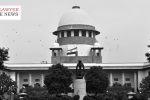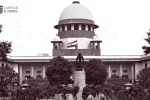No Positive Action Proximate to Suicide; No Offense Under Section 306 IPC”: Supreme Court Acquits NRI in Suicide Abetment Case

The Supreme Court today pronounced a landmark judgement in Amudha vs. The State represented by the Inspector of Police & Anr., acquitting an NRI of charges under Section 306 of the IPC for lack of evidence of incitement or action leading to the suicide of her uncle. The ruling, delivered by Justices Abhay S. Oka and Ujjal Bhuyan, emphasized that “No act is attributed to the appellant proximate to the time of the suicide which was of such a nature that the deceased was left with no alternative but to take the drastic step of committing suicide.
Legal Point at the Core of the Judgment
The case revolved around the interpretation of Section 306 of the IPC, which deals with the abetment of suicide. The appellant, Amudha, was accused of abetting the suicide of her uncle, who died on March 5, 2020. The main legal question was whether her actions constituted an offence under Section 306 IPC.
Facts and Issues of the Case
The case unfolded with the deceased allegedly committing suicide after a property dispute with his brother, Annamalai, and a quarrel over Amudha’s wedding card. The prosecution accused Amudha and her family members of harassing the deceased. However, the appellant argued that she had been in the USA since September 2019, with no direct contact with the deceased before his suicide.
Court’s Assessment and Observations
In their detailed assessment, the Court noted the lack of direct evidence linking Amudha to the deceased’s suicide. The judges referenced key precedents, emphasizing the need for clear evidence of incitement or direct action leading to suicide for a conviction under Section 306 IPC.
Justice Oka highlighted, “Mere allegation of harassment without any positive action in proximity to the time of occurrence… a conviction in terms of Section 306 IPC is not sustainable.” The Court also took note of the four suicide notes, which failed to establish a clear link between the appellant and the suicide.
Decision The Supreme Court concluded that there were no acts of incitement by Amudha proximate to the date of the suicide, and thus no offence was made out against her. The proceedings against her were quashed, but the Court clarified that the trial could proceed against the other accused.
Date of Decision: March 22, 2024
Amudha vs. The State represented by the Inspector of Police & Anr.






